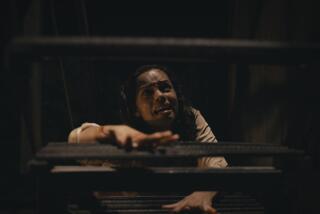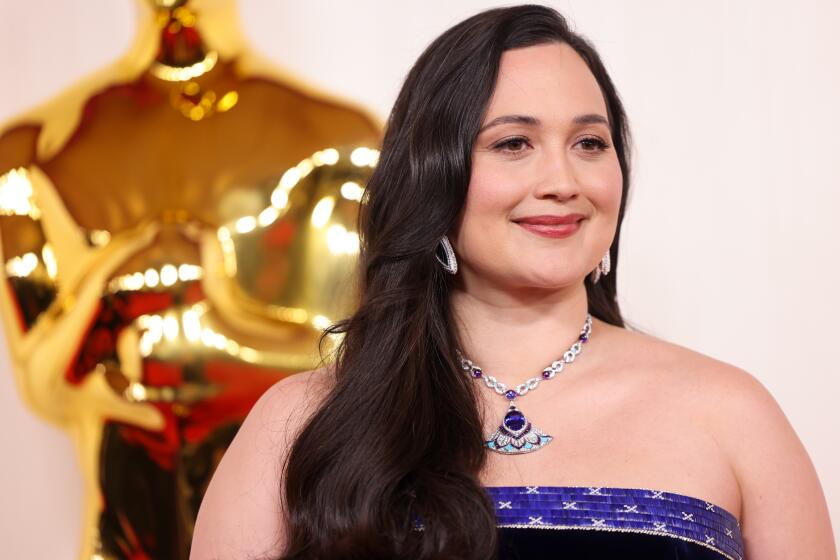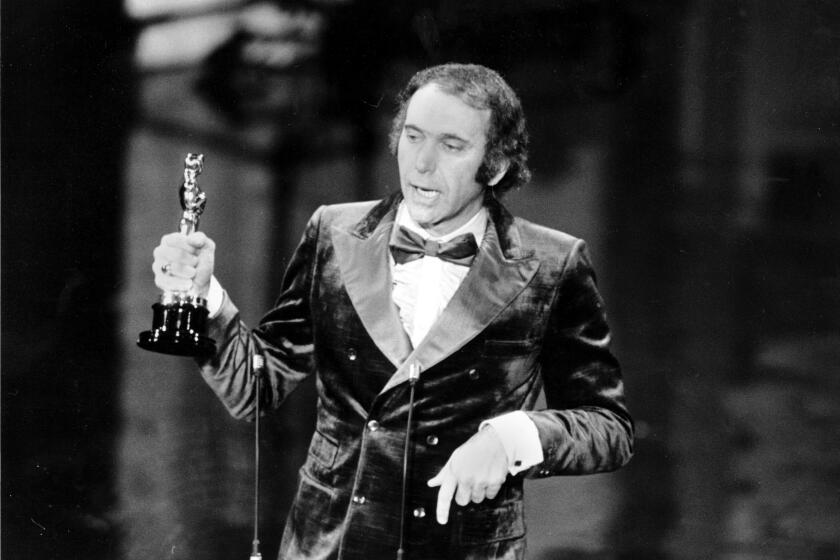Atrocities Revisited Through a PC Filter
My husband is a specialist on Japanese politics and international relations, so I showed him a recent review of Bruce Beresford’s new film, “Paradise Road,” and asked him whether he wanted to see it. “It’s all about a Japanese internment camp for English, Dutch and American women and children in Indonesia during World War II,” I told him.
“Sort of a ‘Shoah’ for my side of the world,” he sighed. “Actually, I’m tired of all that endless rehashing of atrocities in both cases.”
I know what he means. Margaret Mead once wondered aloud to me how long the Germans were expected to stay on their knees, asking for forgiveness: 10 years, an entire generation, forever? But of course the Japanese haven’t been quite so apologetic about their behavior in China and elsewhere.
It so happens that I have written a book about how Americans over the past 57 years have viewed Japan and the Japanese, as revealed in our popular culture. So I suggested that perhaps we should see the film for that reason. Is it to be regarded as further evidence that Americans are still obsessed about the war in the Pacific and that wartime prejudices and stereotypes still persist today?
“Well, Beresford is an Aussie,” my husband pointed out, “and many Australians do still feel strongly about World War II. Some of their women were even forced to become ‘comfort women,’ sex slaves for the Japanese Army.”
So perhaps this film will do well in Australia. Perhaps it will do well in Holland too. I myself am Dutch by birth, and my mother’s younger sister was caught in Indonesia when the war broke out. Her husband was killed when his ship was torpedoed in the South China Sea, and she spent the war in just such a camp in Java. When she returned to Holland in the fall of 1945, we--who thought we had suffered quite a lot under the German occupation--could see what a terrible time she must have had. She was gaunt, had a complete nervous breakdown and even today, at age 80, bears some of the physical and mental scars of her internment. Would she want to see this film? I rather think not.
“I think you’re secretly worried,” I said to my husband, “that this film may not be politically correct.” Even the ads for it are coy, and the word Japan is never mentioned. Instead, the film is described as “a true story about a little-known chapter of World War II, about a group of women who triumph in the face of adversity.” At least “Empire of the Sun” and some of Zhang Yimou’s recent films deal with Japan’s war in Asia in a more forthright way. “After all,” I told him, “these things really happened. Santayana tells us that those who do not remember the past are condemned to repeat it.”
“I agree it’s high time that Australians, Dutchmen, and even Americans started talking about what happened to them, just as the Chinese and Koreans have,” he replied. “But I personally can’t handle Hollywood on any of these subjects.”
Our discussion clearly had reached an impasse. Perhaps, I thought, one should let the marketplace decide. If this film strikes a broadly responsive chord in American audiences, then they’re still prepared to see the Japanese as torturers and barbarians. And that has repercussions, even if muted, on our current trade and security relations. And if the movie bombs (no pun intended)? Well, then perhaps most Americans have lost interest in a rerun of “Bridge on the River Kwai” (1957) or “Merry Christmas, Mr. Lawrence” (1983). Let sleeping dogs lie. Let the past bury the past. That sort of thing.
And if the Chinese, the Aussies, the Koreans and the Dutch still want to scratch their wounds, that’s their privilege, isn’t it? So I am waiting curiously to see how many people want to see Glenn Close suffer and still look beautiful. Believe me, my aunt did not look beautiful when she came home, and she was only 29.
More to Read
Only good movies
Get the Indie Focus newsletter, Mark Olsen's weekly guide to the world of cinema.
You may occasionally receive promotional content from the Los Angeles Times.






